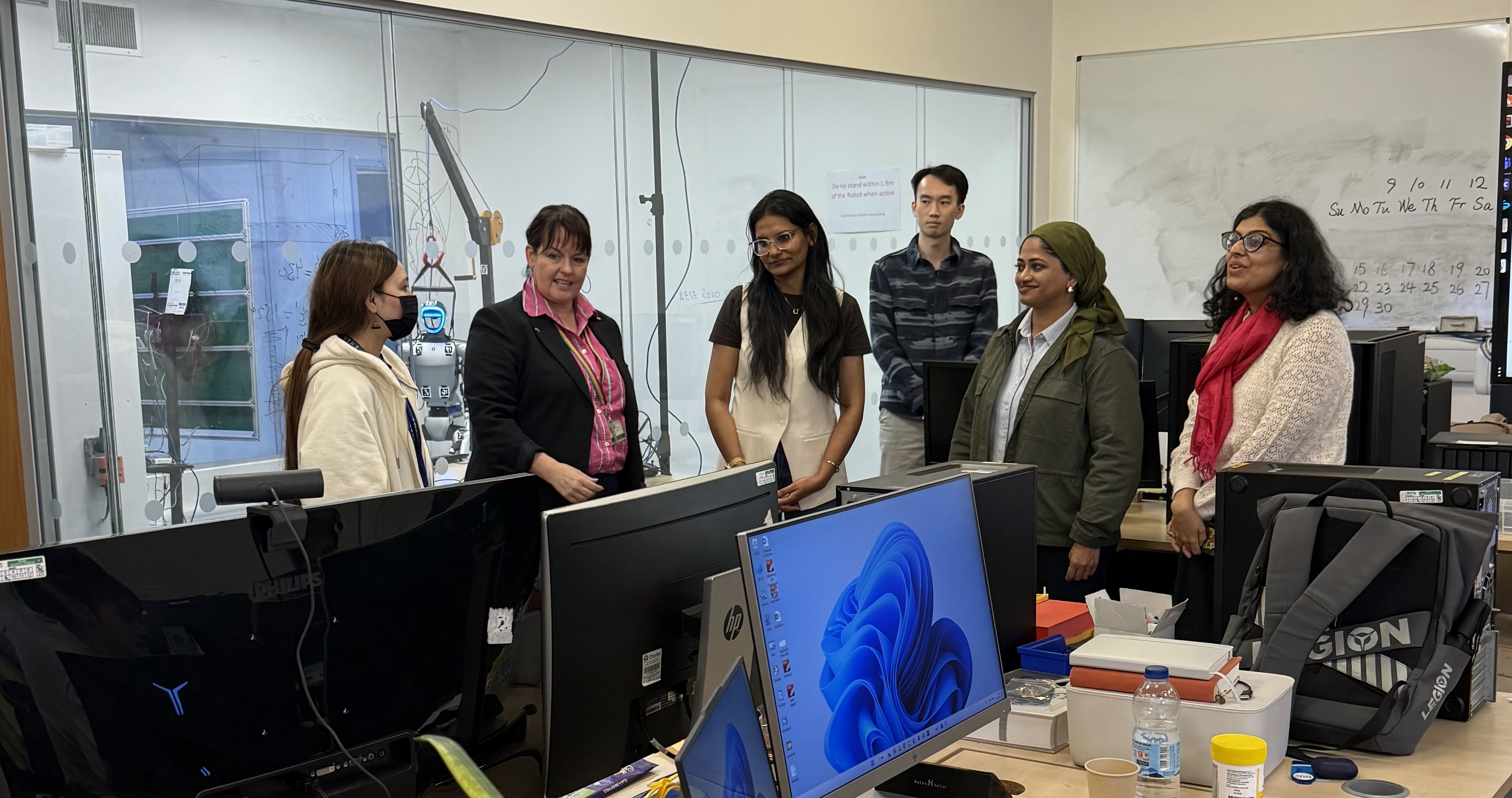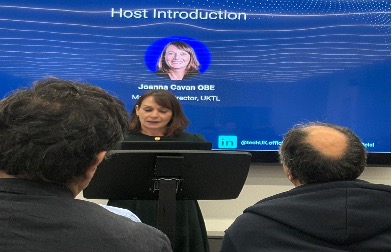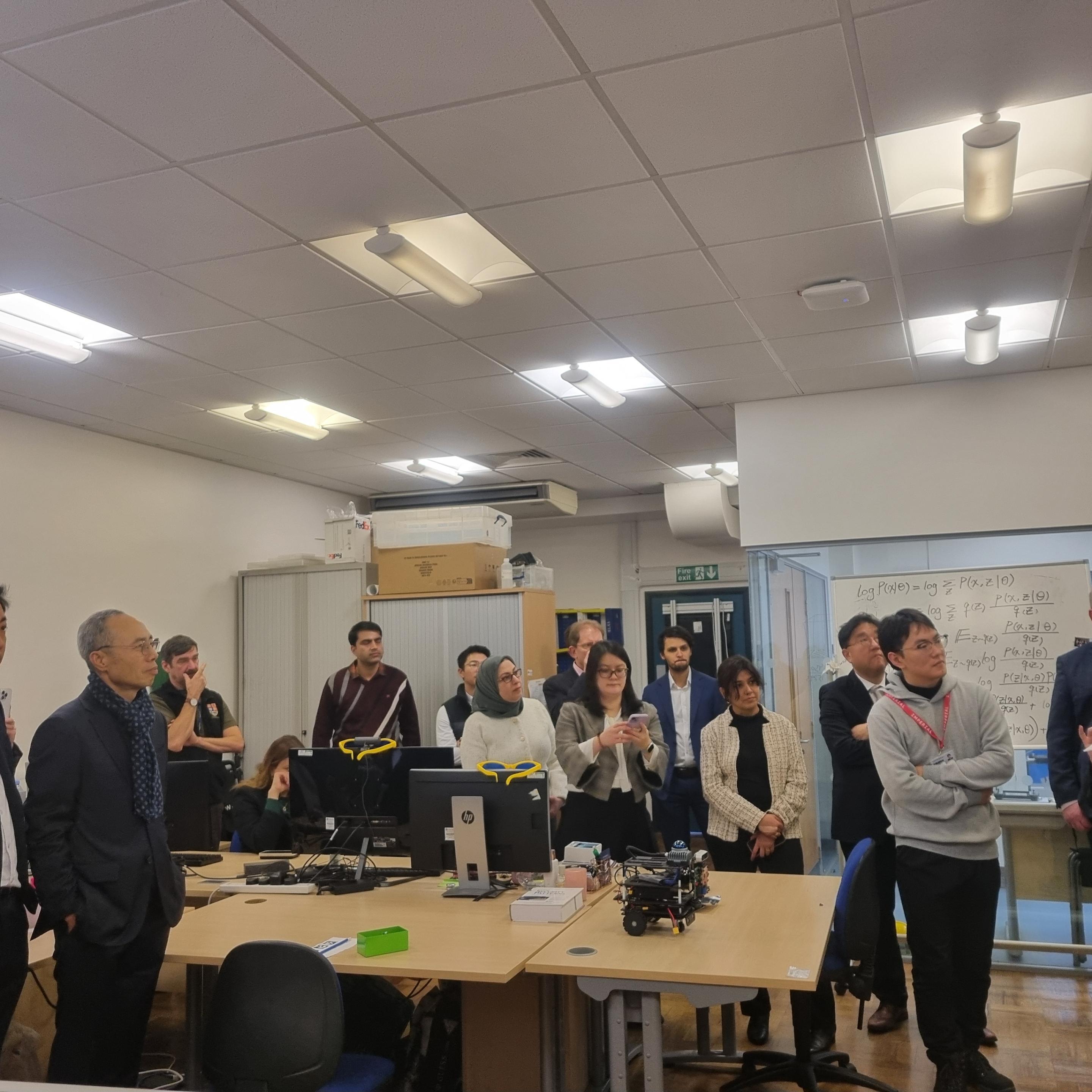Visit from UKRI and the British High Commission in India
30 Sep, 2025

We were delighted to welcome representatives from UK Research and Innovation (UKRI) India, to learn more about the CHEDDAR Hub’s cutting-edge research.
The delegation included:
* Basheera Shaik (UKRI EPSRC, India), Senior Programme Manager
* Zille Anam (UKRI Innovate UK, India), Senior Programme Manager
* Malavika Thirukode (UKRI BBSRC/NERC India)
Their visit offered an excellent opportunity to showcase how CHEDDAR researchers are developing next-generation technologies in radar sensing, swarm robotics, and human-robot interaction.
Demonstrations included:
Radar Object Tracking
The AESE team demonstrated a mmWave FMCW radar system with advanced data acquisition and deep learning–based processing. This technology achieves reliable object tracking across a wide range of conditions. RGB-Depth and infrared cameras were presented alongside, highlighting radar’s consistent performance where optical sensors face limitations such as low light or visual obstructions. Importantly, radar also preserves privacy by capturing motion and position without revealing identifiable visual details.
Small Swarm Drones
The team also showcased their expertise in networking through the implementation of a decentralised communication framework for multiple micro aerial vehicles. This architecture enables swarm intelligence, mirroring the cooperative behaviours found in nature, and provides the foundations for future drone applications in complex environments.
Human-Robot Shadowing
Finally, visitors saw a demonstration of mmWave-based human pose estimation for telerobotic operations. With just a single mmWave radar, the system supports real-time human-robot shadowing, paving the way for practical applications in remote robotic control.
Strengthening Connections
The visit underscored the importance of international collaboration and provided an opportunity to highlight the Hub’s progress to UKRI colleagues working closely with research and innovation communities in India. Strengthening these connections helps ensure that pioneering UK research contributes to global challenges and opportunities in connectivity, robotics, and beyond.




